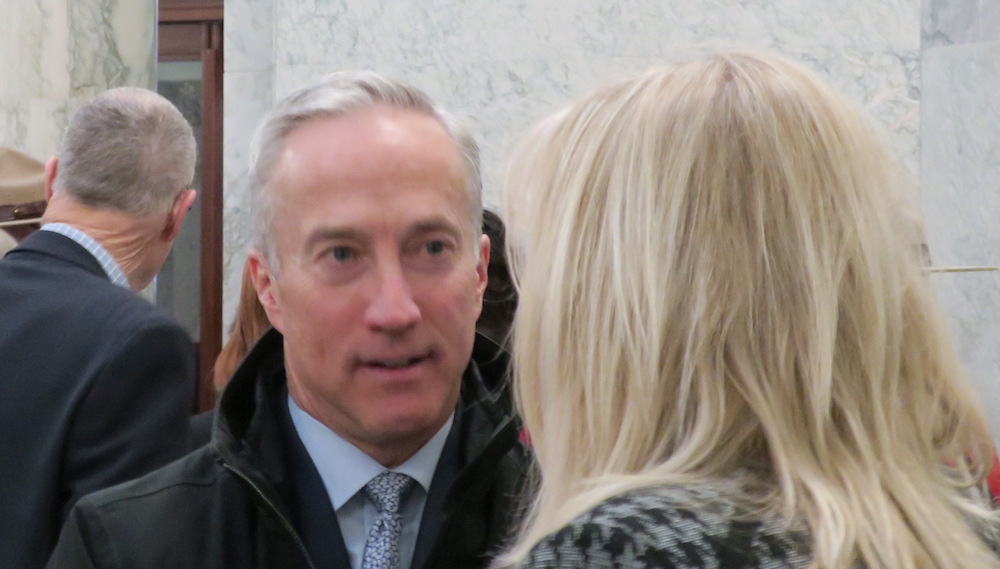Guy Kerr cannot be blamed for the tragic wrong turn the Alberta Workers Compensation Board (WCB) took nearly 30 years ago under the Conservative governments of premiers Don Getty and Ralph Klein.
Under those premiers, Alberta’s effective workers’ compensation system was subverted and undermined. The victims have been injured workers.
By the time Kerr was hired in 2002 to lead the WCB, the provincial worker-insurance agency was already far down the winding path toward a corporate model that eroded the fundamental principles on which the workers’ compensation system is based.
By all accounts, as president and CEO of the WCB, the former chief executive of IBM’s Payment Systems Corp. was a highly capable manager, dedicated to the not-for-profit, employer-funded, independent organization set up to provide insurance to workers who are injured on the job.
His controversial salary of nearly $900,000 a year reflected the attitudes of past Conservative governments about appropriate compensation for corporate executives, even when they are in what should be seen as public service roles.
Speculation is bound to focus on the big pay cut the NDP government of Premier Rachel Notley earlier this year delivered Kerr and other executives of 23 government boards, agencies and commissions as the reason he announced last week he would step down from the leadership of the WCB.
When Finance Minister Joe Ceci announced the cuts in May, Kerr was among the top public officials who stood to lose the most — his 2017 compensation package of $876,022 in salary and benefits was scheduled to fall in May next year to $396,720.
Whatever the reasons for his decision, though, it is probably the right one for Kerr himself and for an organization that needs a new mission that is far more like its original one.
The WCB is supposed to compensate workers for lost income, health care, and other costs caused by injuries suffered on the job.
The concept is based on a report in 1913 by Sir William Ralph Meredith, chief justice of Ontario, which called for no-fault workplace injury insurance, collective liability among all employers, independent administration of the system at arm’s length from government, the promise of prompt income replacement for injured workers, and exclusive jurisdiction for the board.
In return, injured workers lost their right to sue negligent employers for compensation for the factors that led to their injuries.
The system worked well. Fault was not assigned in the event of an injury. Workers and employers alike benefited from employees receiving help. Over time, “The Meredith Principles,” as they came to be known, became the standard for workers’ compensation in virtually all Canadian and U.S. jurisdictions.
Alas, when the Alberta government introduced legislation in 1991 that was supposedly intended to “balance” the rights of employers and employees, the workers compensation system in this province began to come off the rails.
Under Ralph Klein, who succeeded Getty in 1992, the emphasis became trimming employers’ costs by giving them assessment rebate cheques drawn from cash accumulated when injured workers’ claims were tightly controlled. This was often achieved by treating the victims of workplace injuries with suspicion.
Under Kerr’s predecessors, the WCB began to offer incentives in the form of discounted premiums to employers who reported low numbers of workplace injuries — a perverse incentive to employers to encourage employees not to report minor injuries. This, in turn, created conditions that often resulted in more serious workplace injuries.
Moreover, the big payouts made at the cost of subverting the WCB system came to be seen by employers as their right. Right-wing ideologues — of which there is no shortage in Alberta conservative circles — cooked up schemes to privatize workers’ compensation, promoting delusional promises of “choice.”
Over the years in this atmosphere, the Alberta WCB was infected by a private-insurance mindset that has led it to act as if applicants for compensation were malingerers or frauds. WCB case managers were encouraged to disprove claims rather than focus on compensation or retraining.
The result of this philosophy of suspicion of injured workers coupled with zeal for keeping employer costs down led to many legitimate claims being denied. With no ability to sue, injured workers’ only recourse was to contend with a complicated appeal process that is stacked against them.
The for-profit insurance mindset also led the WCB to cap compensation, no matter how much the worker was earning before his or her injury. This did great harm to the historic compromise behind workers’ compensation, which was the assumption that injured workers can expect full compensation for loss of employment.
The private insurance mentality and resulting culture of suspicion is now deeply embedded in the corporate culture of the WCB. It will take hard work, commitment and strong political and management will to root it out.
It can’t be delivered by a corporate executive trained in the for-profit sector, no matter how well intentioned. Leading the Alberta WCB is a job that cries out for a capable civil service manager, the kind of people often mocked as “mandarins,” but who have delivered such valuable service for so many years to Canadians.
So, in a sense, Kerr is irrelevant to the story of what happens now that he has decided to leave.
He didn’t cause the crisis that has plagued the WCB. His mandate, though, was never to solve it.
Regardless, now that he has decided to step aside, the NDP Government has the opportunity to get the institution back on track to be what it was intended to be, and what our society needs.
The principles were clearly outlined in Justice Meredith’s report 105 years ago, and they have been proven to work for more than a century. Workers’ compensation can certainly be improved in the 21st Century — but not by abandoning the sound principles that are its foundation.
This post also appears on David Climenhaga’s blog, AlbertaPolitics.ca.
Image: David J. Climenhaga



